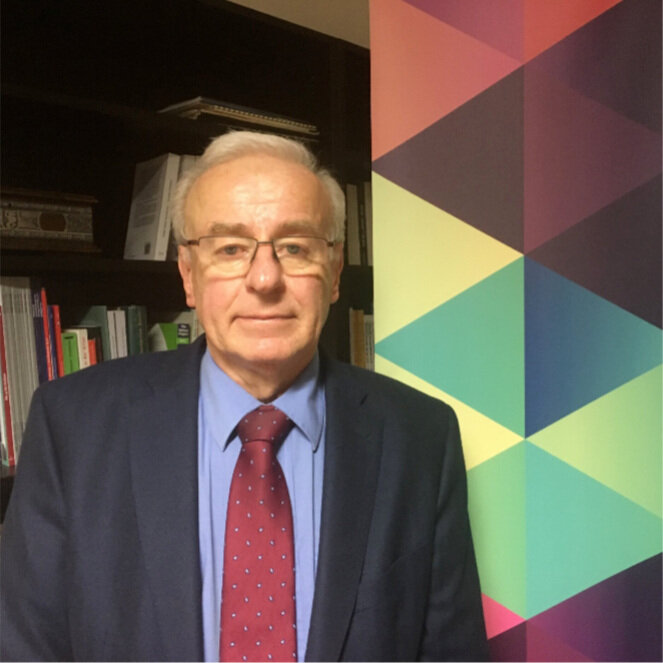
Professor Dr. Heinz Gärtner
BIOGRAPHY
Prof. Dr. Heinz Gärtner, born in Austria in 1951, is lecturer in the Department of Political Science at the University of Vienna and at Danube University in Krems. He was academic director of the Austrian Institute for International Affairs. He has held various Fulbright Fellowships and the Austrian Chair at Stanford University. He was Austrian Marshall Plan Foundation Fellow at the Johns Hopkins University in Washington DC. Among other things, he chairs the advisory board of the International Institute for Peace in Vienna and of the commission Strategy and Security of the Austrian Armed Forces. He published widely on issues of international security, transatlantic relations and the Middle East. Heinz Gärtner received the Bruno Kreisky (legendary former Austrian Chancellor) Award for most outstanding Political Books.
Publications
A-Books
die Ukraine im Krieg: ist Frieden möglich (LIT-Verlag: Münster, 2022).
Das Nuklearabkommen mit dem Iran (LIT-Verlag: Münster, 2022).
Neutral Beyond the Cold, edited by Pascal Lottaz and Heinz Gärtner and Herbert Reginbogin (Lexington: New York, 2022).
China and Eurasia: Rethinking Cooperation and Contradictions in the Era of Changing World Order, edited by Mher D Sahakyan and Heinz Gärtner (Routedge: London & New York, 2021).
Iran in the International System – Iran between Great Powers and Great Ideas, Heinz Gärtner and Mitra Shamoradi (ed.), (Routedge: London & New York, 2020).
Internationale Sicherheit und Frieden (International Security and Peace), (Nomos: Baden-Baden), 2018.
Der Kalter Krieg (The Cold War), (Marix-Wissen: Wiesbaden), 2017.
Engaged Neutrality: An evolved Approach to the Cold War, Heinz Gärtner (ed.), (Lexington/Rowman & Littlefield: Lanham, Maryland), 2017.
B-Articles
“Dual-neutrality for the Koreas: a two-pronged approach toward reunification (together with Pascal Lottaz), Defense & Security, 2022, https://www.tandfonline.com/doi/full/10.1080/14751798.2022.2085109.
“Westliche Ideen zur Neutralität Zentraleuropas und Deutschlands”, International II/2022, 27-29.
„Österreichs Neutralität – Modell für die Ukraine?“ Welt Trends, Nr. 187, Mai 2022, 28-33.
„Global Conflict and Multilateralism“, The new transatlantic relations and the perspectives of the global order, Valentin Naumescu/Raluca Moldovan/Anda Ghilescu (Eds.), Babeș‐Bolyai University Cluj‐Napoca Faculty of European Studies, Presa Universitară Clujeană, 2021, 49-64.
„Iran als langjähriges Feindbild”, Länderbericht USA (Bundeszentrale politische Bildung, 2021), 557-565.
„Die Welt im Umbruch und der Iran“, Weltwandel: Neuausrichtung der internationalen Beziehungen, Markus Ferber (Hrsg.), (Hanns Seidel Stiftung: lau verlag, 2021).
“Eurasia between Multipolarity and Multilateralism”, China and Eurasia: Rethinking Cooperation and Contradictions in the Era of Changing World Order, edited by Mher D Sahakyan and Heinz Gärtner (Routedge: London & New York, 2021).
„Ein neues Selbstbewusstsein des Iran bei den Wiener Verhandlungen“, International VI 2021, 9-10.
„Das Nuklearabkommen und der neue iranische Präsident“, International IV, 2021, 35-39.
“Die ersten hundert Tage Außenpolitik der Präsidentschaft Biden“, International II/2021, 8-13.
“Engaged Neutral States”, iGlobe News (September 6, 2021).
“Georgian Neutrality: An Alternative to the Atlantic Course?” (together with Maya Janik), Neutral Beyond the Cold, edited by Pascal Lottaz and Heinz Gärtner and Herbert Reginbogin (Lexington: New York, 2021).
“Global Conflict and Peace in the Corona and Post-Corona Era”, Understanding International Politics after Covid-19: Challenges, Issues and Perspectives,, Mahdi Javdani Moqaddam & Amir Mohammad Esmaeili (ed.), (Teheran: Imam Sadiq University Press, 2020).
„Das Nuklearabkommen und der neue iranische Präsident“, International, IV/2021, 35-39.
„Die ersten hundert Tage Außenpolitik der Präsidentschaft Bidens“, International, II/2021, 8-12.
„Ein neutrales Afghanistan wäre für alle die beste Option-Nach dem US-Abzug sollte die EU eine Sicherheitskonferenz für die Region ins Leben rufen“ (Gastkommentar), Wiener Zeitung, 27. August, 2021).
“Normalization and the balance of power in the Middle East: There is only one explanation for the normalization deals between Arab states and Israel: the geopolitical position of Iran”, Mondoweiss, December 29, 2020.
„Overcoming geopolitical insecurity: Making the case for a neutral Ukraine according to the Austrian model” (together with Maya Janik), Ukraine in the crosshairs of geopolitical power play, Peter W. Schulze, Winfried Veit (ed.) (Campus: Frankfurt/Main, 2020), 129-160.
“Global Conflict and Peace in the Corona and Post-Corona Era”, Understanding International Politics after Covid-19: Challenges, Issues and Perspectives, Mahdi Javdani Moqaddam & Amir Mohammad Esmaeili (ed.) (Imam Sadiq University Press, 2020).
“How the Iran nuclear deal can be saved” (together with Marc Finaud and Bernd W. Kubbig, Responsible Statecraft, March 5, 2020.
“Europe’s Goal Should be Helsinki”, OSCE Yearbook, (Nomos: Baden-Baden, 2020), 41-52.
“The Model of Neutrality: The Example of East-European-States”, Permanent Neutrality, Herbert Reginbogin/Pascal Lottaz (Ed.), (Lexington: London-New York, 2020), 89-110.
CONTACT
Email:
heinz.gaertner@univie.ac.at
Phone:
+43(0)69912645870
Web:
homepage.univie.ac.at/heinz.gaertner
Twitter:
@gaertnh5
Download Biography
Did you know you can download a resume with pdf format?



